Nestled in the heart of Tokyo, Ryogoku is a captivating district known as the epicenter of Japan’s national sport – sumo wrestling. This historic neighborhood boasts a rich tapestry of cultural traditions and a thriving sumo community, drawing visitors from around the world. Visitors can enjoy the captivating world of sumo by exploring the iconic Ryogoku Kokugikan arena, where the sport’s elite athletes train and compete. Beyond the arena, the district’s culinary heritage shines through in the form of chanko-nabe, a nutritious stew that’s a staple in the diet of sumo wrestlers. Delving into Ryogoku’s unique blend of history, culture, and cuisine promises an unforgettable experience for those eager to uncover the hidden gems of this remarkable sumo town.
This experience made our list of the 25 Best Lunch Experiences In Tokyo.
Key Points
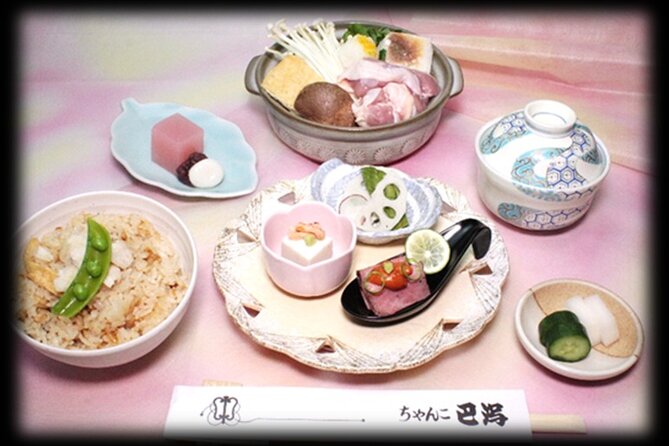
• Ryogoku is the epicenter of Japan’s national sport, sumo wrestling, with a rich history, vibrant culture, and many sumo stables.
• Chanko-nabe, a protein-rich stew, is a fundamental part of a sumo wrestler’s diet and a culinary tradition deeply rooted in Ryogoku’s sumo culture.
• The Tomoegata Chanko restaurant, located in the heart of Ryogoku, offers an authentic chanko-nabe dining experience immersed in the atmosphere of sumo.
• Alcoholic beverages, such as beer and sake, have long been intertwined with sumo wrestling traditions and remain an important social and cultural aspect of the sport.
• Ryogoku Station serves as the meeting point for a guided tour that immerses guests in the cultural significance of sumo wrestling in the Ryogoku Sumo Town.
Overview of Ryogoku Sumo Town
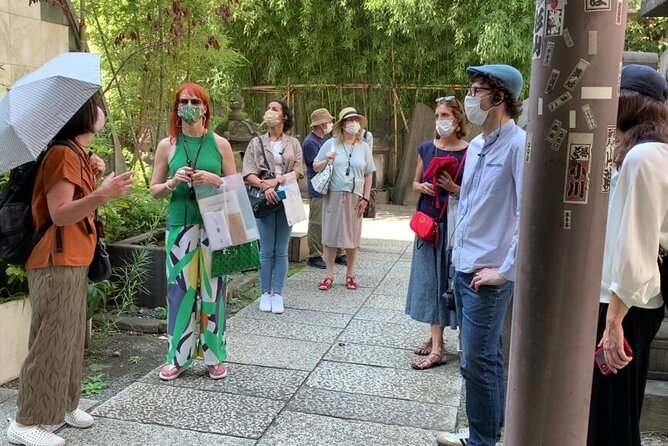
Ryogoku, known as ‘Sumo Town,’ is the epicenter of Japan’s national sport, boasting a rich history and vibrant culture that draws visitors from around the world.
Located on the banks of the Sumida River, this historic district is home to many sumo stables, where aspiring wrestlers train and compete. The area’s streets are lined with chanko-nabe restaurants, where the wrestlers’ staple dish is served, and sumo-themed shops offer a glimpse into the sport’s traditions.
Visitors can explore the Edo-Tokyo Museum, which showcases the region’s storied past, or attend a live sumo tournament at the iconic Ryogoku Kokugikan arena.
Ryogoku’s unique blend of history, culture, and authentic cuisine makes it a must-visit destination for anyone interested in the world of sumo.
Here are more great tours and experiences we've reviewed in Tokyo
Ryogoku’s Sumo Wrestling Heritage
Ryogoku’s deep-rooted connection to sumo wrestling dates back centuries, with the district serving as the epicenter of Japan’s national sport. Home to several prominent sumo stables, Ryogoku has long been the training ground for the country’s top wrestlers. Many of sumo’s most hallowed traditions, from the sport’s ceremonial rituals to the specialized chanko-nabe diet, have their origins here. Visitors can enjoy this rich heritage through a variety of experiences, from watching morning practice sessions to touring the Sumo Museum. Below is a table outlining some of the key landmarks that showcase Ryogoku’s sumo legacy:
| Landmark | Description |
|---|---|
| Ryōgoku Kokugikan | Japan’s premier sumo arena, hosting the sport’s six annual grand tournaments. |
| Sumo Museum | Exhibits chronicling the history, culture, and traditions of sumo wrestling. |
| Sumo Stables | Training facilities where wrestlers live and practice under the guidance of veteran coaches. |
| Chanko Restaurants | Establishments serving the nutrient-dense stew that fuels the sport’s athletes. |
Chanko-Nabe: Sumo Wrestler’s Cuisine
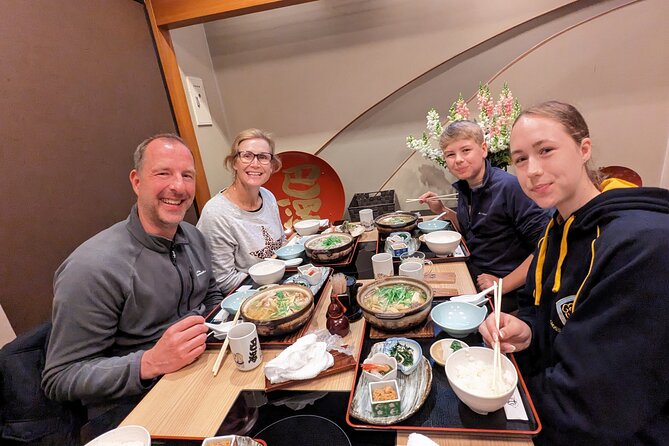
Integral to the training regimen of sumo wrestlers, chanko-nabe is a hearty, protein-rich stew that provides the fuel for these massive athletes.
The dish features a variety of ingredients, including chicken, pork, seafood, and an assortment of vegetables, simmered together in a savory broth.
This nutritious meal is a staple in the lives of sumo wrestlers, who consume large quantities to maintain their impressive size and strength.
Chanko-nabe isn’t only a fundamental part of a sumo wrestler’s diet, but it’s also a culinary tradition deeply rooted in the culture of Ryogoku, the heart of Japan’s sumo wrestling community.
Enjoying this iconic dish is an integral part of the Ryogoku Sumo Town experience.
Exploring the Tomoegata Chanko Restaurant
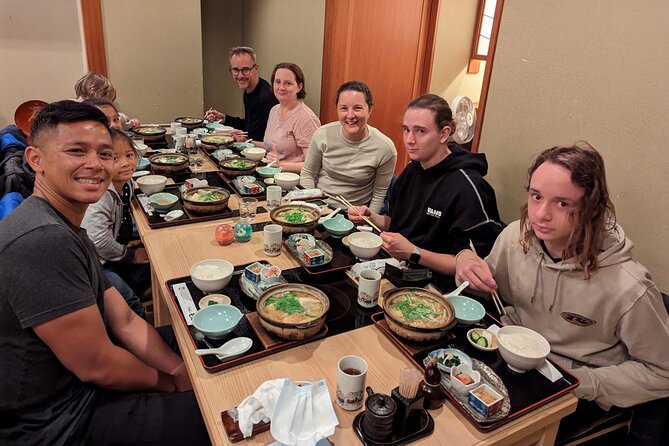
The Tomoegata Chanko restaurant in Ryogoku is a renowned hotel that offers visitors an authentic glimpse into the world of sumo wrestling cuisine.
Situated in the heart of Japan’s sumo capital, this restaurant specializes in preparing the hearty and nutritious chanko-nabe stew, which has long been a staple in the diets of these powerful athletes.
Diners can watch as the expert chefs skillfully prepare the sumptuous dish, which features a variety of meats, vegetables, and seasonings simmered to perfection.
The relaxed and convivial atmosphere of the restaurant allows guests to fully enjoy the unique culinary traditions of the sumo world.
It’s an experience not to be missed for those seeking a deeper understanding of this revered aspect of Japanese culture.
Alcoholic Beverages and Sumo Culture
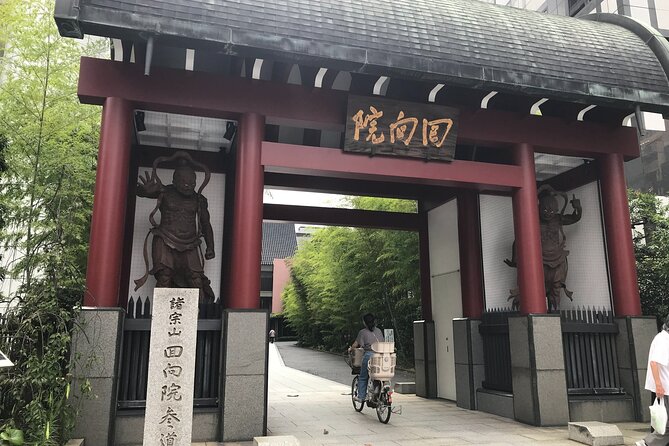
Alongside the hearty chanko-nabe stew, alcoholic beverages have long been closely intertwined with the traditions and culture of sumo wrestling in Japan.
During sumo tournaments, spectators often enjoy a cold beer or sake as they watch the wrestlers engage in their intense bouts. This pairing of food and drink has become an integral part of the sumo experience.
The wrestlers themselves also have a long-standing relationship with alcohol, as it’s believed to help them gain weight and maintain their hulking physiques.
While moderation is key, the consumption of alcoholic beverages remains an important social and cultural aspect of the sport of sumo.
- English Driver 1-Way Haneda Airport To/From Tokyo 23 Wards
- From Tokyo: Private Sightseeing Tour to Mount Fuji & Hakone
- Mount Fuji Full Day Private Tour (English Speaking Driver)
- Tokyo City Customized Tour With English Speaking Guide
- Kanto 10-Hour Chartered Day Trip | Tokyo City
- Akihabara Culinary and Culture Adventure: Your Personalized
Meeting Point at Ryogoku Station
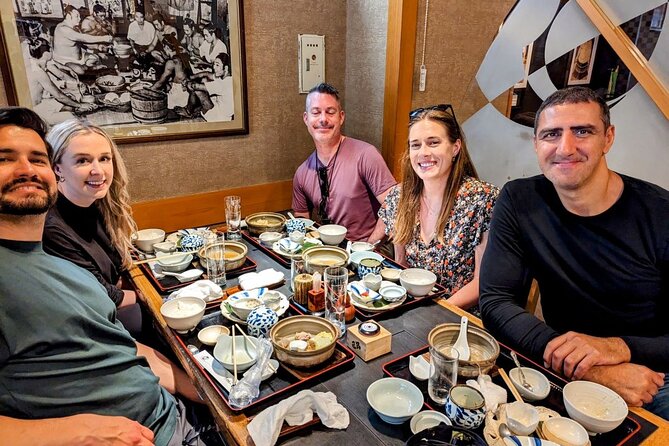
From out of Ryogoku Station’s Toei Oedo Line A3 exit, you will commence the Sumo Town tour, exploring the storied neighborhood at the heart of Japan’s ancient national sport. The meeting point is strategically located to provide easy access, allowing guests to conveniently gather before embarking on their culinary and cultural adventure.
| Meeting Point | End Point | Tour Schedule |
|---|---|---|
| Toei Oedo Line Ryogoku Station (E12), A3 exit |
Tomoegata Chanko restaurant in Ryogoku |
Start time: 9:30 AM |
With the tour kicking off at this central location, guests can look forward to an enriching exploration of Ryogoku’s storied sumo heritage and savor the authentic flavors of chanko-nabe, the staple dish of sumo wrestlers.
Tour Schedule and Transportation
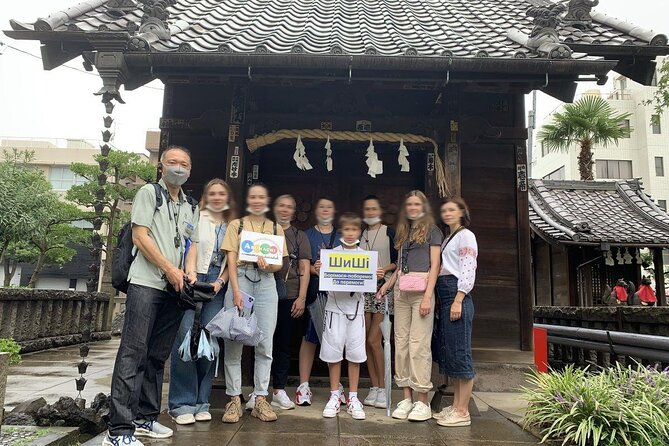
The tour commences promptly at 9:30 AM, allowing guests ample time to explore Ryogoku Sumo Town and savor the culinary delights of chanko-nabe.
Following the meeting at Ryogoku Station‘s Toei Oedo Line A3 exit, you will embark on a guided journey through the heart of this historic neighborhood, seeing the rich traditions of sumo wrestling.
Transportation is provided, with hotel pick-up and drop-off included in the tour package.
Guests can look forward to an engaging and informative experience, learning about the cultural significance of sumo while indulging in the hearty and comforting flavors of chanko-nabe, a staple dish in the world of sumo.
Cancellation Policy and Refunds
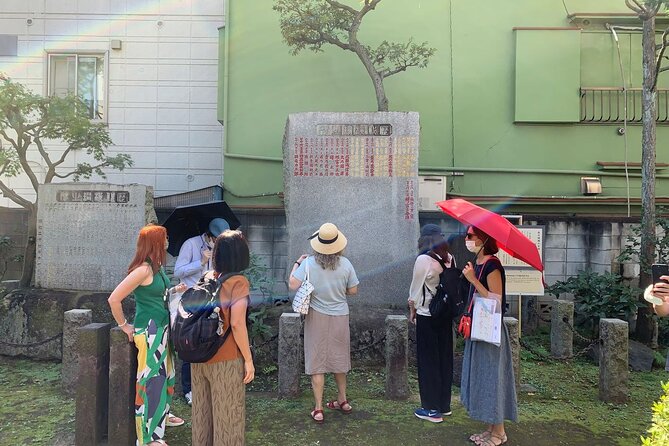
Travelers can obtain a full refund for cancellations made up to 24 hours before the tour’s scheduled start time. However, no refunds are available for cancellations within 24 hours of the experience.
This flexible cancellation policy allows visitors to plan their itineraries with confidence, knowing they can adjust their plans if necessary without penalty.
The key details of the cancellation and refund policy are:
- Full refund for cancellations up to 24 hours prior
- No refund for cancellations less than 24 hours before the tour
- Confirmation provided at the time of booking
- Prompt processing of refunds for eligible cancellations
This straightforward policy ensures a hassle-free experience for all travelers interested in exploring the rich history and culture of Ryogoku Sumo Town.
Frequently Asked Questions
Can the Tour Accommodate Dietary Restrictions?
Yes, the tour can accommodate dietary restrictions. Travelers should inform the tour operator of any dietary needs when booking, and the restaurant will work to provide a suitable meal option.
Is There a Minimum Age Requirement for Participants?
There’s no minimum age requirement for the tour. However, the tour notes that infants must sit on laps. Participants of all ages are welcome, as long as infants are properly accommodated.
How Long Is the Lunch Portion of the Tour?
The lunch portion of the tour is not explicitly stated in the tour overview. However, it’s likely that the chanko-nabe lunch is a substantial part of the experience, though the exact duration is not provided.
Can We Take Photos During the Sumo Cultural Experience?
Yes, participants can take photos during the sumo cultural experience. The tour description states that photography is allowed, so visitors are free to capture the sights and atmosphere of this unique cultural activity.
Is There a Discounted Rate for Children or Seniors?
The tour doesn’t offer a discounted rate for children or seniors. All participants, regardless of age, pay the same price. The maximum group size is 8 travelers, and infants must sit on laps during the tour.
Recap
Ryogoku Sumo Town offers visitors a unique culture into Japan’s national sport.
From exploring the storied sumo heritage to savoring the protein-rich chanko-nabe stew, this district provides an authentic glimpse into the captivating world of sumo wrestling.
Whether it’s discovering the culinary traditions or witnessing the sport’s deep-rooted significance, a trip to Ryogoku promises an unforgettable experience for those seeking to enjoy Japan’s rich cultural tapestry.
More Lunch Experiences in Tokyo
- Tokyo: 3-Day Sightseeing Tour With Lunch
- Zen Retreat in Kamakura: Zen Meditation, Bamboo Temple, and Lunch
- Restaurant Bus Tokyo With Japanese Lunch and Zazen Experience
- Mt Fuji Lake Kawaguchi Oshino Hakkai Gotemba | Tokyo With Lunch
- Sake Tasting With Sommelier and Vegan Chinese Lunch in Tokyo
- Tokyo: Full-Day Tour W/Tea Experience,Buffet Lunch & Cruise
More Tour Reviews in Tokyo
- Tokyo: Shinobi Samurai Premium EXP for Solo Travelers, 90min
- Mt Fuji Private Tour With English Speaking Driver
- Nerikiri Wagashi-Making With Tea Ceremony Review
- Tokyo 3-Hour Guided E-bike Cycling Tour of the Citys Hidden Gems
- Official Street Go-Kart Tour – Shinagawa Shop
- 【Open 1st Anniv.】Popular Sushi Making Class Near Tokyo Tower
Not for you? Here's more things to do in Tokyo we have recnetly reviewed
- 2 Best Craft Beer Tours And Tastings In Tokyo
- 20 Best 2 Day Tours In Tokyo
- 7 Best 3 Day Tours In Tokyo
- 6 Best 4 Day Tours In Tokyo
- 25 Best Cruises And Boat Tours In Tokyo
- 25 Best Food Tours In Tokyo
- 20 Best Full-Day Tours In Tokyo
- 15 Best Helicopter Flights And Tours In Tokyo
- 2 Best BBQ Experiences In Tokyo
- 5 Best Coffee Tours And Tastings In Tokyo
- 25 Best Lunch Experiences In Tokyo
- 12 Best Massage And Relaxation Services In Tokyo
